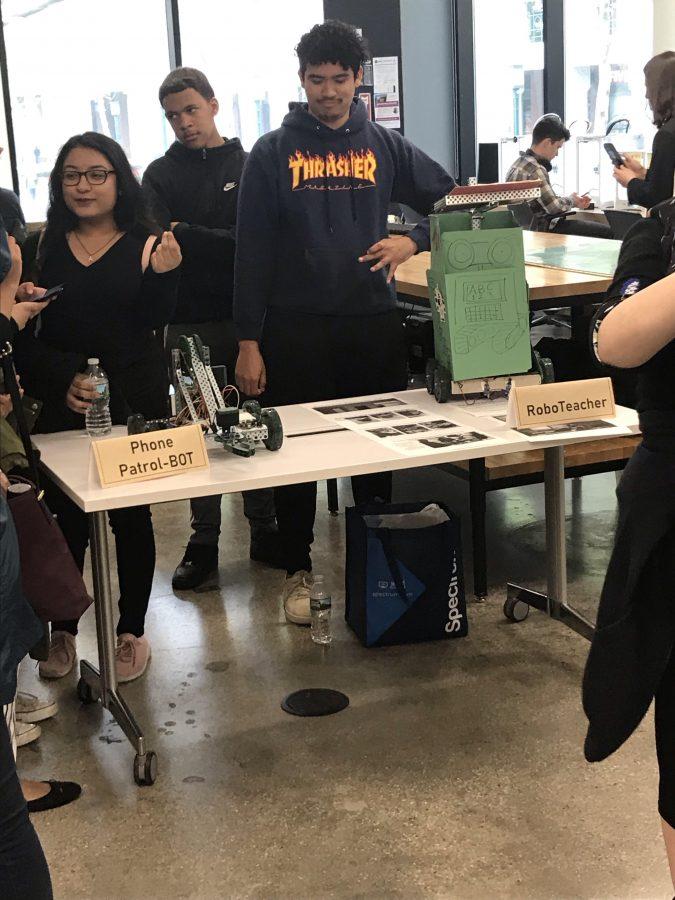A robot that can roam the halls of any school in the nation, looking for any students outside of the classroom and reporting them at a moment’s notice won first place at a robotics competition at the Tandon School of Engineering on Tuesday.
The competition gives New York City high school students the opportunity to work with NYU faculty to create a working robot as part of NYU Tandon’s Innovation Technology Experiences for Students and Teachers Robotics and Entrepreneurship project, a program that helps New York City math and science teachers create robotics and engineering curricula.
“Building these robots is really hard to do,” Dr. Sheila Borges Rajguru, the assistant director at the Tandon Center for K-12 STEM Education, said. “Some college students wouldn’t even be able to do this.”
Seven teams of students presented their robots to a panel of judges that included the CEOs of tech companies and professors in the field. The robo hall monitor, nicknamed Detech-tech, was created by a group of students from Validus Preparatory Academy, a small public high school in the Bronx.
Students were assigned to create a robot that could solve problems within their schools. In second place was Water-bot, a robot that delivers water to classrooms in order to keep students hydrated, and in third place was Robo-sist Microscope, a robot that helps students examine different chemicals and substances in chemistry classes.
“You need young people to learn about the field and to get them excited,” Professor Vikram Kapila, the primary investigator of ITEST at NYU, said. “They can define the field.”
The winners get a cash prize of $1,000, in addition to the opportunity for two students from the winning team to take a summer internship at Silicon Harlem, a tech company that aims to transform Harlem into a hub of technology and innovation. The CEO of Silicon Harlem was also one of the judges at the competition. Second place and third place teams have the opportunity to send one student each to the internship.
Rajguru said that many of the students involved in the program come from underserved communities and that this is an opportunity for them to explore their passion for STEM. Kapila hopes that exposing younger students to STEM through the competition can help diversify a field where people of color and women are underrepresented compared to white people and men.
“We want all students involved — women, students of color,” Kapila said. “By presenting this field to them at a young age, we can help them envision the future that we cannot.”
Over the summer, these students participated in a four-week program where they learned about robotics and entrepreneurship in STEM with NYU faculty. In addition, STEM teachers from the represented high schools undergo professional training with NYU, so they can teach an elective robotics class when they return to school in the fall. Tandon graduate students then continue to work with teachers during the school year, offering support and guidance.
The program is funded by the National Science Foundation, which offers grants for similar programs at other schools and universities that aim to foster an interest in STEM among high school students.
“When we look at the future of the country and in the world — we look to them,” Kapila said.
Email Jesse Jimenez at [email protected].






















































































































































